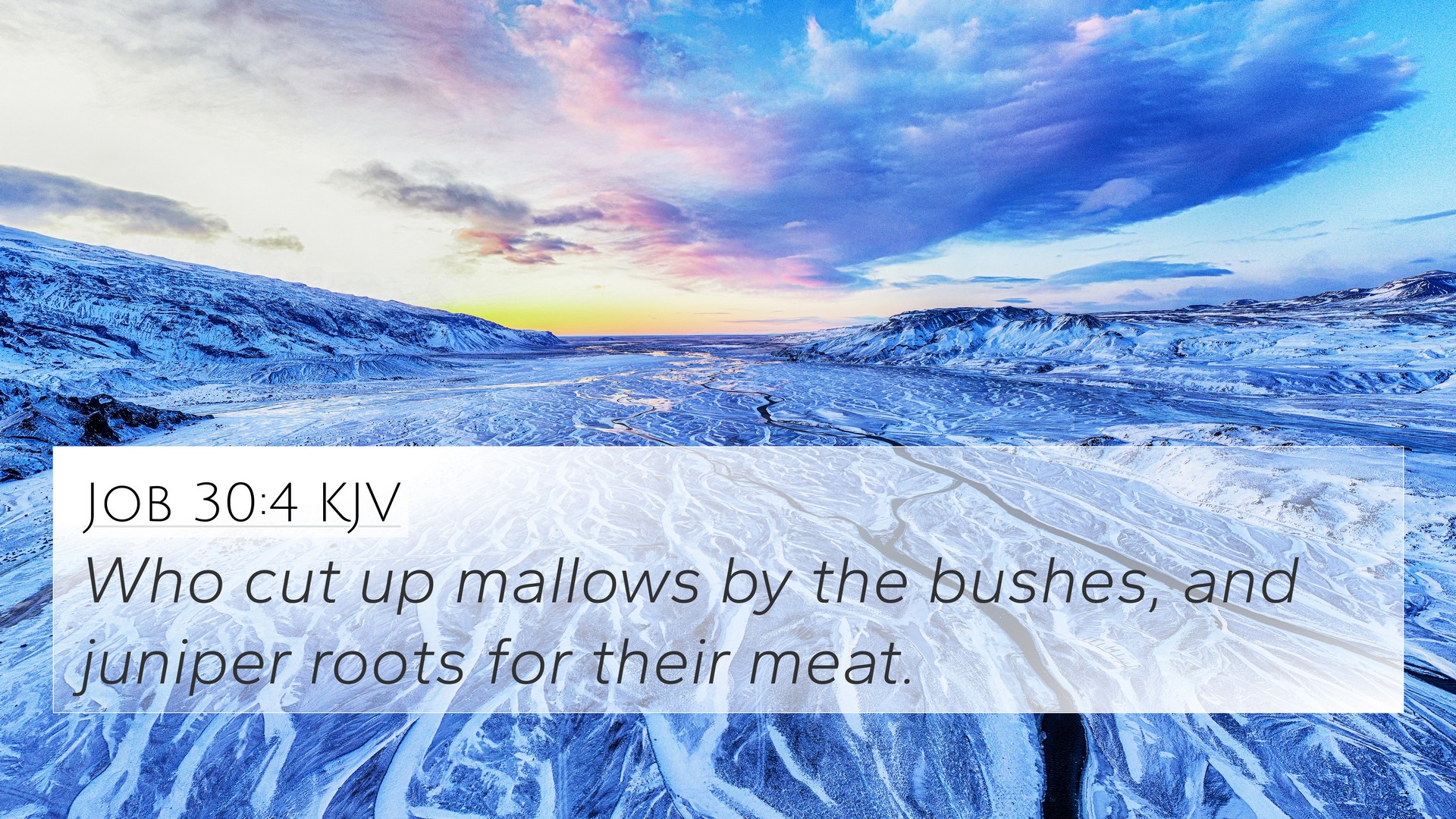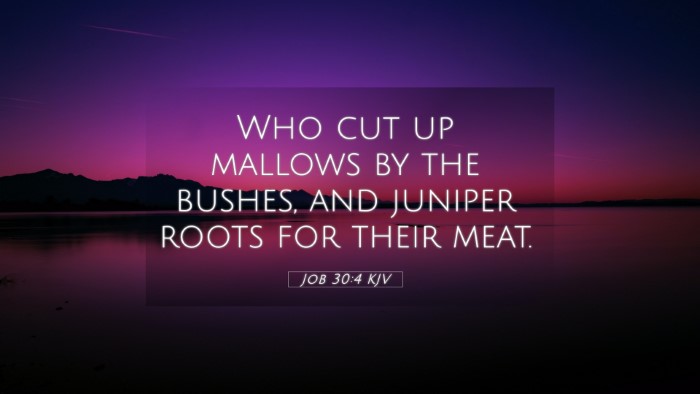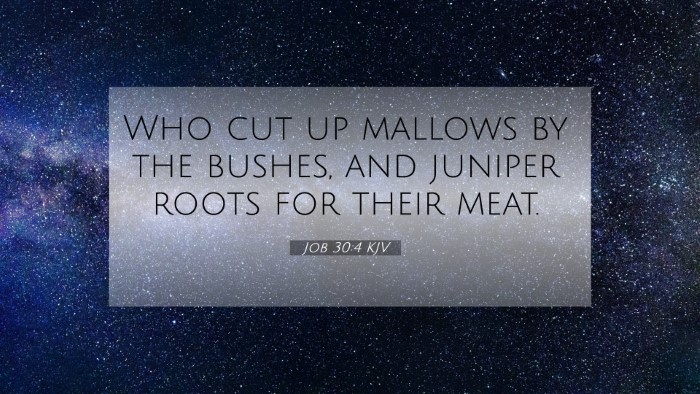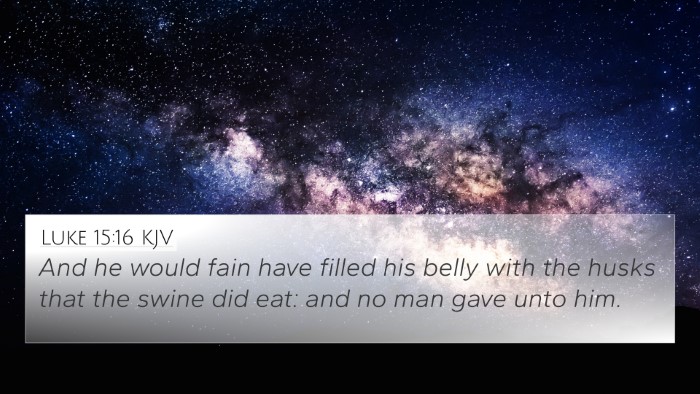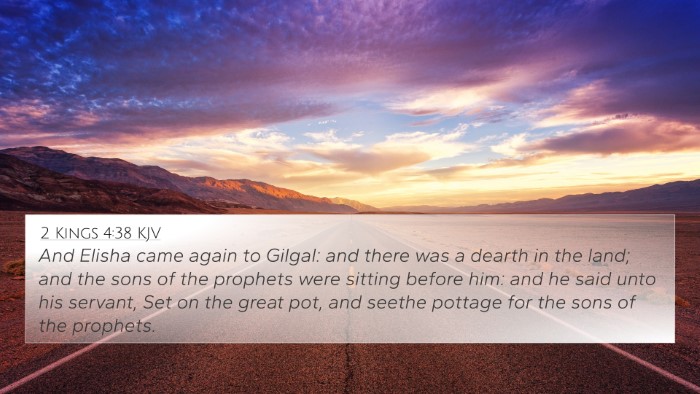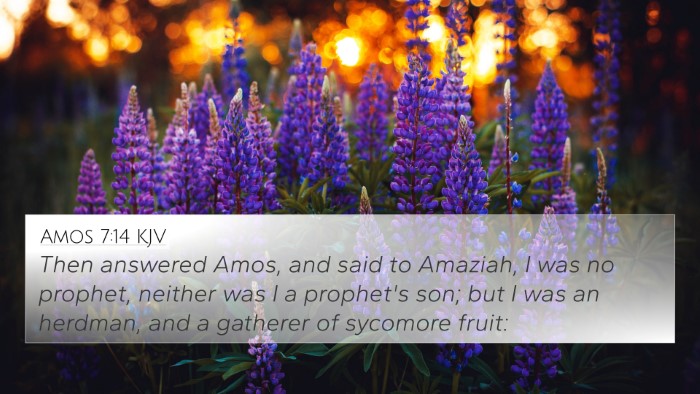Understanding Job 30:4
Job 30:4 reads: "Who cut up mallows by the bushes, and juniper roots for their meat." This verse captures Job's lament about his dire state and the depth of his suffering.
Summary of Insights from Commentaries
This verse serves as a poignant reminder of Job's misery and isolation. The references to "mallows" and "juniper roots" portray the degradation of Job's condition, symbolizing that he is reduced to scavenging for food that is typically unfit for consumption.
-
Matthew Henry's Commentary:
Henry elaborates on the desperation of Job, noting that the mention of food items like mallows and juniper underlines the lack of sustenance for someone in his situation. It highlights how low Job has fallen and suggests a deeper spiritual angst accompanying his physical hunger.
-
Albert Barnes' Notes:
Barnes provides insight into the cultural and historical contexts of these plants. The juniper, while possibly palatable in times of extreme duress, indicates that Job was existing on the fringes of society and through dire conditions. This reveals both a physical and emotional barrenness in Job’s life.
-
Adam Clarke's Commentary:
Clarke suggests that these references point to the extreme depths of degradation that Job faced, emphasizing his isolation from society and friends. He also interprets this as symbolic of Job's former vitality, now transformed into a figure of profound despair.
Related Bible Verse Cross-References
The following verses provide additional context and parallels to Job 30:4, enhancing our understanding of Job's predicaments and broader biblical themes:
- Psalm 102:4: "My heart is smitten, and withered like grass; so that I forget to eat my bread." – Reflects similar despair.
- Proverbs 15:17: "Better is a dinner of herbs where love is, than a stalled ox and hatred therewith." – Touches on the theme of humble sustenance.
- Lamentations 3:19-20: "Remembering mine affliction and my misery, the wormwood and the gall." – Conveying a state of desolation and bitterness.
- Isaiah 58:7: "Is it not to deal thy bread to the hungry, and that thou bring the poor that are cast out to thy house?" – Highlights the importance of compassion towards the needy.
- Matthew 5:3: "Blessed are the poor in spirit: for theirs is the kingdom of heaven." – Relates to the Beatitudes and the spiritual posture of those in distress.
- Job 6:5-6: "Doth the wild ass bray when he hath grass? or loweth the ox over his fodder?" – Evaluates the nature of suffering and sustenance.
- Luke 16:21: "And desiring to be fed with the crumbs which fell from the rich man's table: moreover the dogs came and licked his sores." – Another depiction of hunger and despair.
Thematic Bible Verse Connections
This verse opens discussions on several theological themes, including:
- Human Suffering: Examining the patterns of suffering displayed in Job's experience, which parallels many other biblical accounts.
- Isolation and Despair: Job's isolation reflects broader themes in scripture regarding loneliness and alienation in times of distress.
- Provision and Sustenance: The quest for food symbolizes deeper spiritual needs and God's provision during hardships.
Conclusion
Job 30:4 is a powerful verse that captures the depths of human suffering and biblical imagery of desperation. By exploring cross-references and connecting themes within scripture, readers can gain a richer understanding of both the verse and the overarching narrative of despair and hope within the Bible.
